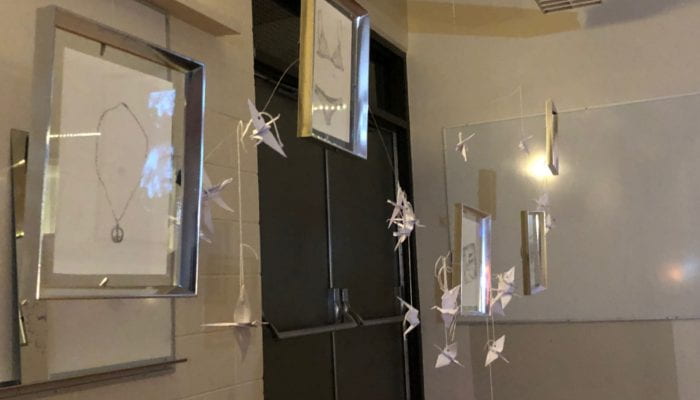I recommend that you listen to the podcast episode above before reading this post, especially if you aren’t familiar with Deep Cove or the Heritage Society that’s located there. Those two topics are what brought me to the project where the final product was that episode. The Deep Cove Heritage Society, as I explained in my podcast has been making an effort to preserve Deep Cove’s history since 1985. So what is Deep Coves history? This area has experienced many changes over time which I also talk about in the podcast. Deep Cove is changing today as well, and to record these changes my class conducted archival interviews for the Heritage Society. These interviews helped begin this project, where the driving question asks, “How did Canadian life develop after WWII?”.
Like I explained before, the archival interview was the beginning of this project, but it also helped me throughout the project and I even ended up including part of it in my podcast episode. My interview partner Grace (you should definitely check out her podcast “Society’s Waltz”) and I talked to a Deep Cove resident Trevor Carolan for this interview. This step made me think about what my podcast was going to look like, the history of Deep Cove, and how continuity and change in Deep Cove would help me answer the driving question. You may have noticed that this was not the only interview in my podcast, there were actually two! For the first interview the Heritage Society gave us the questions we needed to ask, but I had to decide what I wanted to ask my second interviewee. This involved planning and research, oh look it’s my podcast planner where I recorded all of this research👇
Once I did that research I was able to do my second interview. At this point I wasn’t completely sure what direction I wanted to go in for my episode, but I had lots of ideas from my first interview, having a guest speaker during our online classes, and the stepping stone assignments I had completed up to that point. Some of my questions had a focus on the arts in Deep Cove, and while having an artist’s perspective was useful in the end, I ended up using the discussing, listening, and speaking I did in this interview on a different focus for my episode. I noticed a similarity between my two interviews that both of them discussed why they came to Deep Cove, then if they decide to stay or leave. Noticing that people’s reasons for coming to Deep Cove changed as lives and conditions changed, for example more people came to Deep Cove towards the end of the 50’s as it became more of a suburb, made me decide that the focus of my episode was going to be what made people come to Deep Cove from the 1950’s to today. I could then tie this topic to my two interviews, my research about the 50’s, and Canada as a whole. The final script to plan out this episode is also in my podcast planner👆
This project’s main focus was the 1950’s, the time after WWII when Canadian life changed greatly. That’s why the driving question asked how Canadian life developed after WWII. I was able to accomplish☀️ answering this question in my podcast episode, but to go in more depth with my answer I completed a full written answer in class.
To summarize my answer, I said that the identities of Canadians, including their values and quality of life changed in the 1950’s due to arts and culture, human rights, and personal image becoming more valued by Canadians. This project helped me understand the timeline of Canadian history from the end of WWII to today, how Canadian identity has changed, and how Deep Cove’s history and the stories of the people who live there show continuity and change in Canada.













